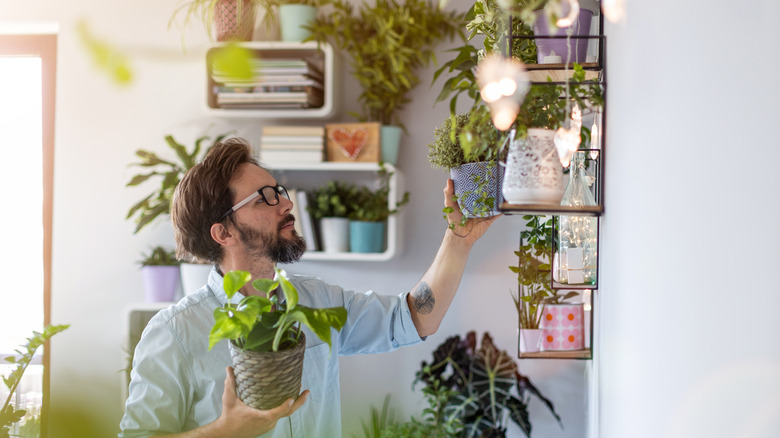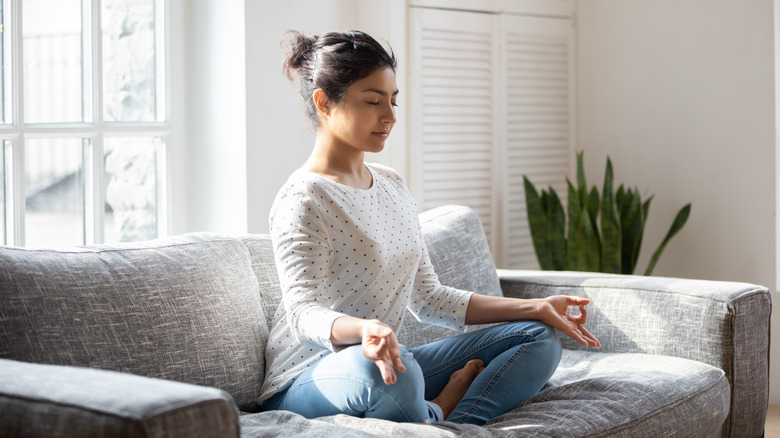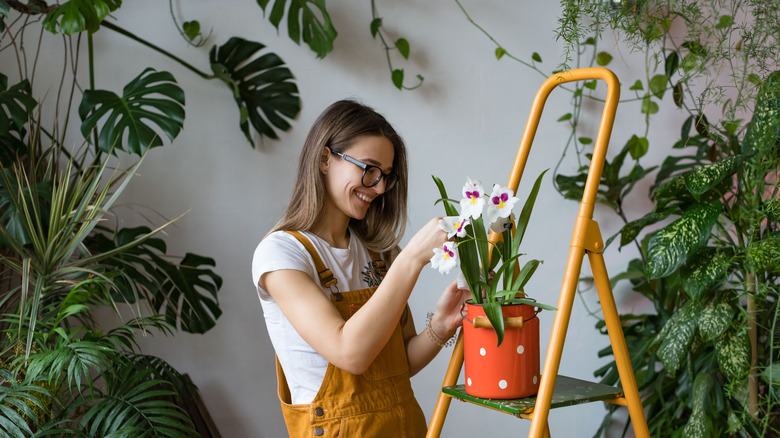How Having Houseplants Affects Your Health
Are you a budding indoor gardener with a few houseplants or an experienced indoor gardener with plants everywhere? No matter how many plants you have, you probably know they offer some health benefits. The best one is that they filter out carbon dioxide and provide you with oxygen. If you don't have any yet, read on for how houseplants affect your health, and it might give you the nudge you need to get your first plant.
Houseplants can improve the quality of air in your home and even help with allergies. A 2012 study found that plants can help improve indoor air quality by reducing carbon dioxide, volatile organic compounds, and particulate matter, making the indoor air healthier.
Rooms with plants have less dust and mold than rooms without plants, helping with any dust or mold allergy symptoms. The plants can help trap allergens to help you breathe easier. Just avoid any plants with spores or pollen. If you're looking for good plants to help reduce your allergies, go for a peace lily, lady palm, dwarf date palm, bamboo palm, areca palm, violet, English ivy, ficus, Boston fern, dracaena, rubber plant, or Chinese evergreen (via WebMD and a 2011 study).
Houseplants can reduce stress
Add some plants to your home, and you might experience less stress. A small 2015 study had 24 male participants, and the researchers split them into two groups. One group was given a computer-related task, and the other group was assigned an indoor plant-related task. Researchers measured the participants' blood pressure, heart rate, and pulse before and after the tasks. Those with the computer task had an increase in blood pressure and heart rate, but those with the plant-based task had a lower stress response and felt comfortable and soothed after.
A horticulturist points out that it's not just being around the plants that help reduce stress; it's the act of caring for them too. Whether you're potting or watering your houseplants, you're focused on them. That forces your mindset to be in the moment, instead of stressing about the past or future, a type of mindfulness that can significantly reduce stress (via Prevention and Marie Claire).
Houseplants can help you focus
Do you want better focus and productivity with work and school? It's time to get some houseplants. In a 2019 study with 23 students aged 11 to 13, researchers put kids in a classroom with a real plant, a photo of a plant, an artificial plant, or nothing. Using brain scans of the students, the researchers found that the students in the classroom with a real plant could concentrate more easily and were more attentive than students in all of the other groups.
The magic number of plants to put in a classroom might be three, but that may depend on the classroom size. According to WebMD, students in a classroom with three potted plants did better on all of their tests than students in classrooms with no plants.
Office plants boosted workers' productivity by 38%, according to a 2013 study with 350 participants and 90 experiments. It also proved that office plants boost creativity and overall well-being.
Houseplants can improve mental health
If you think being around plants helps your mental health, you're not alone. Researchers surveyed 4,205 people in 47 different countries about how plants helped them during COVID-19 lockdowns. Over 55% of the respondents said they would have liked more indoor plants at home during the lockdown. People preferred about five to seven indoor plants and some on their balconies or outdoor spaces. The respondents felt that having and caring for the plants improved their emotional well-being (via a 2021 study).
While the pandemic has increased mental health problems in many people, researchers discovered that caring for indoor plants is helping. A 2020 survey of 3,000 people living in Tokyo, Japan, asked participants about their mental health, including loneliness, depression, happiness, life satisfaction, and self-esteem. Researchers found that people who spent time outdoors or just looked at plants from indoors had an easier time with the lockdown period between April 7, 2020 and May 25, 2020.
Houseplants can help with physical pain
Taking care of plants can reduce your physical pain, whether it's chronic or you're recovering from surgery. Gardening was prescribed to patients with chronic pain, along with their other pain management treatments, in a study with 79 patients who either had chronic back pain or fibromyalgia. Researchers of the study had the patients in a four-week in-patient pain management program. One group had pain management treatments without plants, and the other incorporated horticultural therapy — working with plants for seven one-hour sessions. The group with horticultural therapy had an easier time dealing with pain and experienced reduced physical pain (via 2012 study).
Another study tested people's pain tolerance by having them submerge their hands in ice. There were 198 participants, and some were in a room without plants, and some were in a room with similar décor with plants. Those in the room with plants were willing to hold their hands under ice water for more than five minutes (via 2010 study).
Add plants to your home for better pain relief and the ability to cope with chronic pain. Houseplants positively affect your health in many ways. Add them to every room in your home to breathe easier, reduce stress, improve concentration and focus, improve mental health, lessen allergy symptoms, and reduce physical pain.





